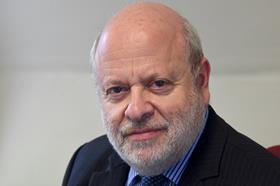Several newspapers reported that Michael Beloff QC (as he was) gave an opinion in 2011 that the rules of the Garrick Club in London excluded the possibility of women members, but he has now changed his mind. Take cover for a revolution! Women may become members of the Garrick Club.

The legal opinion has not been released. Indeed, the club’s general committee has apparently said that the new advice in no way reflects its own view, that the opinion is not authorised for distribution, and that it has unanimously decided not to adopt it: ‘Opinions are exactly that: opinions’.
Your reaction might be to laugh at a legal bigwig brought low by a revised assessment (particularly given the offensive consequences of how he said the rules should initially be applied), or to applaud a lawyer willing to admit that his first opinion is now wrong.

The case turns, inevitably, on whether the word ‘he’ can include ‘she’ under 1925 property legislation.
Important decisions have rested on the interpretation of the masculine pronoun. The need arises from a fault in our own much-loved language. We are so proud of English: so concise and pragmatic, so flexible, so welcoming of new concepts, so able to express poetry and the profoundest thoughts. Yet this basic need to use a pronoun which expresses the gender of the person to whom it refers causes legal wrongs (never mind great offence).
In the law, there have been rules about it since 1850 when parliament passed an act ‘for shortening the Language used in Acts of Parliament’, whereby masculine words in legislation were ‘deemed and taken to include females’. There was soon an attempt to repeal the act in case – heaven help us – it allowed women to claim the right to vote. But the principle has stood, and indeed been reinforced in the Interpretation Act 1978, and in many private agreements.
A few years back, the Civil Service issued advice on gender neutral drafting of legal documents: ‘Breaking down gender stereotypes in legal writing’. It proposed three basic rules:
- repeat the noun (for example, ‘a person is entitled to a benefit if the person...’);
- change the pronoun (for example, by using ‘they’ or ‘their’ in the singular: ‘a person fails to comply with their duty...’);
- rewrite to avoid the need for a pronoun (for example, ‘It is an offence for a person to...’, rather than ‘A person commits an offence if he...').
I don’t like the first one (repeat the noun) since it turns into clumsy English. And one possible solution is omitted, which often resolves the problem, which is to turn everything into the plural, so that the use of the word ‘they’ covers all possibilities.
In the kind of writing that I do, where the word ‘lawyer’ is often the singular to whom reference is made, the plural pronoun is the obvious way around constant repetitions of ‘his or her’. I don’t understand why there is not an equivalent ‘their’ for ‘his or her’ …
… except that there now is, as the second rule makes clear. Although purists may shudder when ‘their’ or ‘they’ follows a singular noun, as in ‘A lawyer should tell their client’, it is fast becoming acceptable, and a good thing, too. It avoids the need for never-ending and ridiculous repetitions of ‘his or her’ or ‘references to he include she’.
I have recently been involved in a piece of legal writing where we used the plural ‘they’ or ‘their’ to refer to a singular lawyer at various places in the document. The document was written by UK and US lawyers, but when it was circulated to non-English speaking lawyers, who had been brought up on the correct use of English, they all protested loudly at our faulty grammar. A plural pronoun with a singular noun – no, no, no!
We explained that the language has changed. The current sensitivity to the use of pronouns, which is no longer confined to the original argument about the inclusion of women, has meant that the avoidance of ‘he and she’ also avoids current political controversies about gender identification which raise hackles on all sides. The non-English speaking lawyers were not happy at the new usage, but shrugged their shoulders and we moved on.
Of course, this raises another question on which everyone has a strong opinion: whether the rules of English should be strictly respected, or whether we acknowledge that language changes constantly, sometimes for very good reasons (and sometimes with usages which initially appal). The correspondence columns of the quality newspapers would be almost empty without this eternal debate.
My view is that this particular change is good. We should get over our shudders for the sake of simpler, clearer, fairer writing. If the usage had appeared in the Garrick’s original rules, Michael Beloff KC would have been saved his or their two conflicting opinions.
Jonathan Goldsmith is Law Society Council member for EU & International, chair of the Law Society’s Policy & Regulatory Affairs Committee and a member of its board. All views expressed are personal and are not made in his capacity as a Law Society Council member, nor on behalf of the Law Society
This article is now closed for comment.































11 Readers' comments